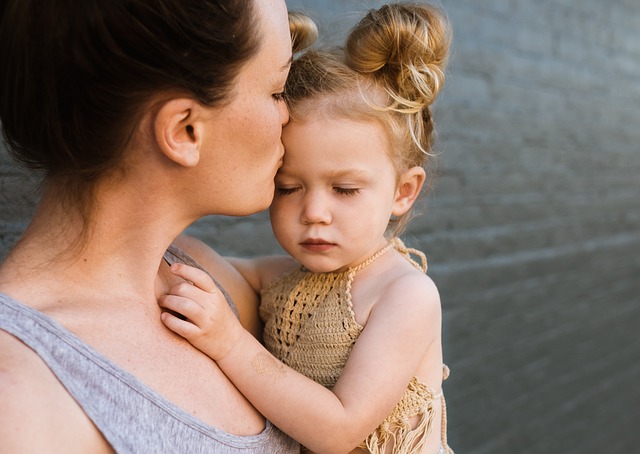By Jeanne Beard, (mother of two sons with special needs & founder of National Autism Academy)
Public speaking is the number one fear of all time, even before death, which ranks at number five on the list, and loneliness comes in seventh place! Imagine if every social interaction had the same level of stress, unpredictability, and fear as public speaking. That’s how it is for individuals with autism.
Every interaction with another human being is fraught with anxiety, intolerable unpredictability, psychological discomfort (stemming from both real perceptions of past failures, and misconceptions about how others feel), and brain numbing fear of the unknown, and is capped off by the burning desire to end the uncomfortable interaction as quickly as possible.
To make matters worse, this fear isn’t about a rare public speaking gig, it happens all day long, every day, seven days a week, for someone with autism. With no breaks. Ever! Every interaction with another human being qualifies as a social interaction. Going to school, driving a car, ordering a pizza, buying candy at the drug store, and answering the telephone are all social interactions. This elevates the need for teaching social skills from important to imperative because our children’s long-term success and independence are contingent on it!
A child’s ability to learn social skills is predicated by the need to have certain pre-requisite behaviors, including:
- The ability to listen
- The ability to sit quietly
- Control of their behavior (at least during the social interaction)
- The ability to recognize and ask when they need a break
- The capability to manage/tolerate being in a group
These skills alone can be a major task to accomplish for some children with ASD, and once the child can manage these behavior basics, they are ready to tackle some fundamental social skills, including how to ask a question, listen to the answer, following the conversation, make small talk, and take turns.
Experts believe that not knowing what is expected of them in a social situation is one of the most anxiety producing experiences an individual with autism faces. So, the next step is to practice applying these skills in a rehearsal environment.
As a parent, we need to teach concepts such as why the guest gets to choose the activity or what to say and do if you are losing a game. Practicing the exact words to say is mission-critical. Without this practice, a child with autism will probably have no idea what is expected of them, or what to do or say!
How to practice social skills at home
Taking turns
A basic exercise is to practice taking turns with the child. Sit down with some blocks and ask the child to build a tower, then ask them to knock it down, and take your turn doing the same. Then introduce a peer and follow the same steps.
Play games together
Playing games with your child helps him to control his need to win, and to focus on the fun of playing. Plan responses for winning and losing so the child know what to say to their friend.
Arrange a playdate
Once the child has practiced the preliminary social skills and having a playdate, arrange for a brief, one-hour play date. Here are some tips to help things go smoothly.
* Make the playdate brief 1-2 hours max (even less if that is all your child can tolerate successfully).
* Make sure the child understands the structure of the play date (what will happen first, second, etc.). Rehearse so the child knows exactly what will happen each moment when the guest arrives.
* Invite the right guest for the playdate. Another child on the spectrum will probably not facilitate a smooth playdate, so pick someone who is neurotypical and accepting.
* Do not introduce new toys or games. Remember just having someone new in the house can be very trying for a child on the spectrum.
* Select activities that you can practice and that are not too demanding for the child. You will already be challenging their comfort zone in other ways.
* Be sure to have everything set up for the playdate before the guest arrives.
* Several days before the playdate, begin preparing the child by determining 3 options for what the children can do.
* Explain to the child on the spectrum, that the guest gets to choose the activity from the 3 that were pre-selected.
* Teach small talk techniques by practicing questions they can ask such as “how was school?” “how was your weekend?” This skill needs to be taught, practiced and rehearsed.
* Finally, have a contingency plan. No matter how prepared you and your child might be, there is a possibility that a problem will develop. If you need to separate your child from the guest for a break, have an activity available for the other child.
About the Author
 Jeanne Beard, founder of the National Autism Academy and author of “Autism & The Rest Of Us”, has decades of experience in the trenches with Asperger’s Syndrome and Autism Spectrum Disorders, and the people diagnosed with them.
Jeanne Beard, founder of the National Autism Academy and author of “Autism & The Rest Of Us”, has decades of experience in the trenches with Asperger’s Syndrome and Autism Spectrum Disorders, and the people diagnosed with them.
In addition to her essential life experience creating functional, nurturing, and balanced relationships with those on the spectrum, Jeanne was mentored by clinical expert Timothy Wahlberg, PhD during the writing of his clinical guide “Finding the Gray: Understanding and Thriving in the Black and White World of Autism and Asperger’s.”
Through her incredible insight into the thoughts, experiences, and challenges of those on the spectrum AND of the rest of us, Jeanne builds a bridge to hope and a better future for us all.
For More Information Visit: https://nationalautismacademy.com
Facebook: https://www.facebook.com/NationalAutismAcademy
Instagram: https://www.instagram.com/nationalautismacademy


